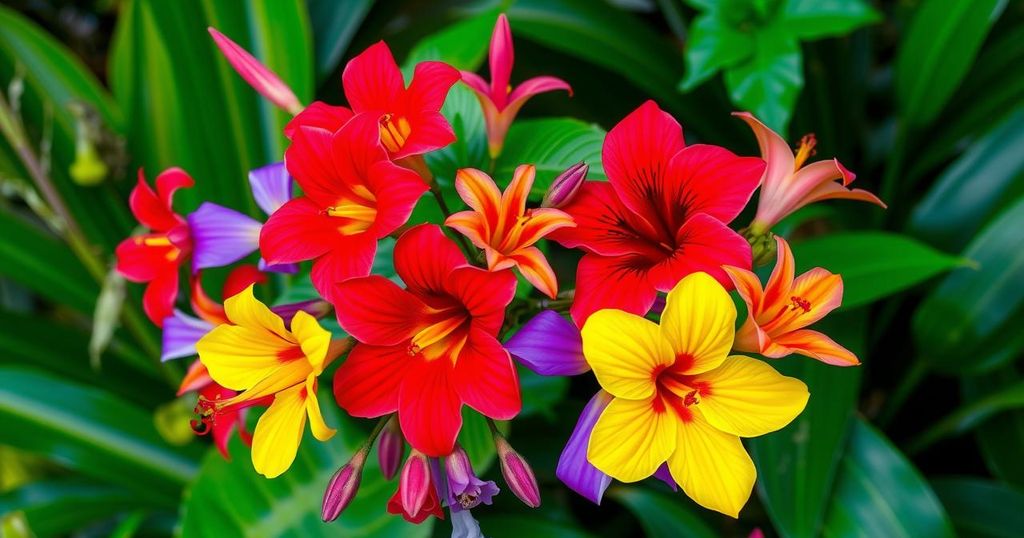Ecuador’s flower industry is under pressure from increasing tariffs and trade issues. Known for its roses, the sector is struggling with supply chain disruptions and declining demand, especially as it approaches critical sales seasons. Farmers are exploring solutions, but the future remains uncertain as negotiations continue.
Ecuador is facing challenges in its flower export industry amid ongoing tariffs and trade tensions. This South American country, known for its vibrant flower production, is currently dealing with the implications of increased tariffs imposed by various nations. Flower exports, particularly roses, play a vital role in Ecuador’s economy, contributing significantly to the income of many farmers and businesses in the sector.
As the global market for flowers fluctuates, the situation is further complicated by the ongoing impact of COVID-19, which has disrupted supply chains and reduced demand. Farmers in Ecuador are now grappling with balancing production costs against the backdrop of tariff increases. Many are concerned about how these changes will affect their livelihoods.
Moreover, the onset of new trade agreements has created uncertainty within the flower export market. Policy experts suggest that additional tariffs could deter foreign buyers, leading to a decline in sales for Ecuadorian flower farmers. Analysts note that the timing coincides with the preparation for peak seasons like Valentine’s Day and Mother’s Day, which are critical for obtaining revenue in the flower business.
Ecuadorian officials are working diligently to negotiate with trading partners to alleviate some of the pressures created by these tariffs. It’s crucial for the nation to maintain its reputation as one of the top producers of roses globally. The government is exploring potential strategies aimed at mitigating the negative effects on the export market.
Despite these challenges, some farmers remain hopeful. They are exploring innovative cultivation techniques and diversifying their product offerings to appeal to changing consumer preferences. Shifts toward more sustainable farming methods have also gained traction, as consumers increasingly value eco-friendly practices.
The future of Ecuador’s flower industry hangs in the balance, as trade discussions continue and farmers adapt to the ever-changing landscape of international commerce. The importance of this sector can’t be overstated, as it supports thousands of families and impacts the nation’s economy.
Overall, the interplay between tariffs, trade regulations, and the global demand for flowers presents a complex challenge for Ecuador’s flower industry. Whether immediate solutions can be found will be vital for countless farmers relying on this lucrative market.
In summary, Ecuador’s flower export sector faces significant hurdles due to increased tariffs and the ongoing impacts of trade agreements. As farmers navigate these challenges, their resilience and adaptability will be key to sustaining their livelihoods and the nation’s economy. The government’s efforts to alleviate trade pressures will be crucial in preserving Ecuador’s standing in the global flower market.
Original Source: www.goshennews.com






